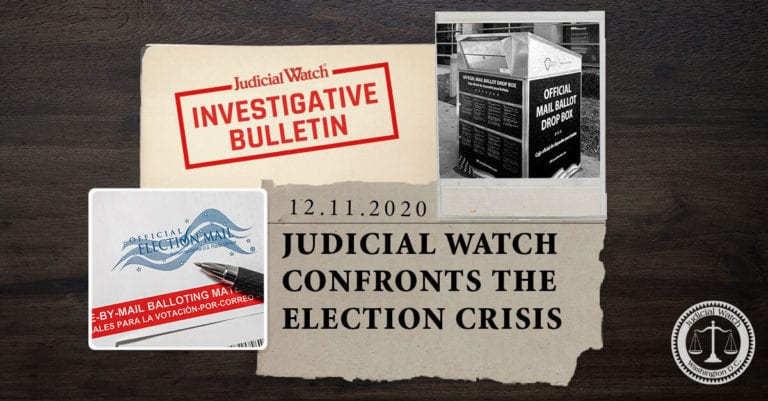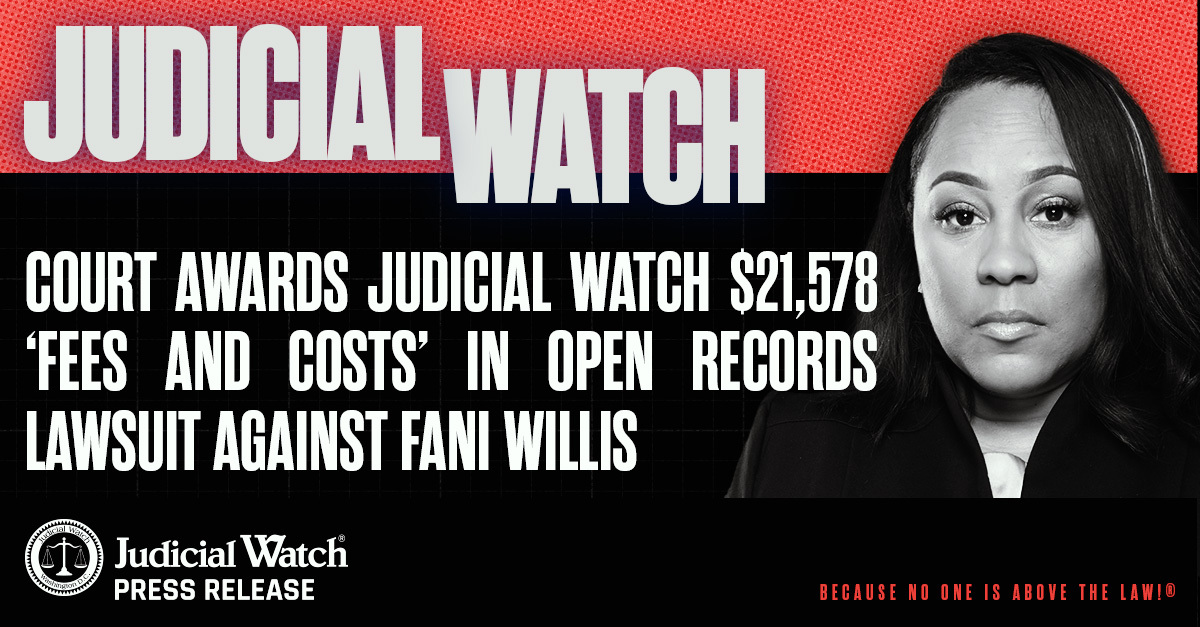

Judicial Watch Confronts the Election Crisis


President Trump has been pounding the bully pulpit about the integrity of the electoral system as he battles for a second term. We know how he feels. Judicial Watch litigation teams have been working for years to clean up dirty voting rolls. Here’s the president in a December 2 speech:
“It’s a widely known fact that the voting rolls are packed with people who are not lawfully eligible to vote, including those who are deceased, have moved out of their state, and even non-citizens of our country. Beyond this, the records are riddled with errors, wrong addresses, duplicate entries, and many other issues.”
That’s not a surprise to Judicial Watch supporters. We’ve extensively reported on our legal fights to clean up dirty voter rolls, many of them in battleground states. Under the National Voter Registration Act, states are required to remove “inactive voters” from registration rolls if they do not respond to an address confirmation notice and then fail to vote in the next two general federal elections. Many “inactive voters” in fact have died or moved to a new location.
In October, we published a groundbreaking study analyzing data that showed there are at least 1.8 million of these “ghost voters” spread across more than 350 counties in 29 states. The data revealed eight states where the number of registered voters actually exceeds 100% of eligible voting-age citizens in the state! That dubious distinction goes to Alaska, Colorado, Maine, Maryland, Michigan, New Jersey, Rhode Island, and Vermont.
Dirty voting rolls are a breeding ground for fraud. The Judicial Watch study “highlights the recklessness of mailing blindly ballots and ballot applications to voter registration lists,” says Judicial Watch President Tom Fitton. “Dirty voting rolls can mean dirty elections.”
Earlier this year, we sued Pennsylvania for failing to make reasonable efforts to remove ineligible voters from their rolls, as required by the NVRA. The state set out a ludicrously low level of inactive names eligible for removal under the NVRA, as we reported in October. The state initially claimed that in one county of 457,000 registrants, it had found only eight inactive names eligible for removal. In another county of 357,000 registrants, only five names had been removed. In a third county of 403,000 registrants, only four names were removed.
Pennsylvania has since revised its numbers, admitting it had reported incorrect information to a federal agency on the removal of ineligible voters. But even the new figures are too low. Pennsylvania now admits that in eighteen other counties—which together contain twenty-five percent of the entire state’s registered voters—it removed a grand total of fifteen inactive, ineligible voters in a two-year period.
We also went to court in Colorado, where studies have shown that a majority of the state’s counties have registration rates that exceed 100% of the voting-age population. Our lawsuit charges “an ongoing, systemic problem with Colorado’s voter list maintenance obligations.”
We filed a lawsuit in North Carolina for the same reason—large numbers of ineligible voters on the state voter rolls. By our estimate, North Carolina has nearly one million inactive voters on its rolls.
We’ve warned five states—Pennsylvania, Colorado, North Carolina, California, and Virginia—to clean up their dirty voter rolls. In California, we uncovered 1.6 million inactive voters on electoral rolls and sued, forcing Los Angeles County to clean up its act.
We’ve successfully taken on Ohio, Kentucky, and Indiana as well. In Ohio, a Supreme Court decision upheld a voter-roll cleanup stemming from a Judicial Watch lawsuit. In Kentucky, we sued for a voter-roll cleanup and won. Indiana agreed to clean up its rolls after Judicial Watch launched an investigation.
Judicial Watch is happy to see President Trump take on election integrity issues. When it comes to voting rolls, he’s right. We’ll keep fighting to clean them up, no matter who occupies the Oval Office.
***
Micah Morrison is chief investigative reporter for Judicial Watch. Follow him on Twitter @micah_morrison. Tips: [email protected]
Investigative Bulletin is published by Judicial Watch. Reprints and media inquiries: [email protected]















